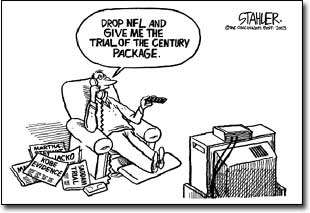Bob Bartley of The Wall Street Journal
By Joseph Perkins
Bob Bartley, editor emeritus of The Wall Street Journal, died this week. He was the most influential editorialist of the past quarter century. He was a man in full.
A 1982 cover story in The Washington Post’s Sunday magazine provided my first introduction to Bartley. It described him as the “impresario of conservative opinion” in America who “uses his editorial page as an offensive weapon.”
The 1980 Pulitzer Prize winner for editorial writing, Bartley boasted an “attack-dog writing style,” the Post attested. His prose leapt from the page with “muzzle velocity.”
And that’s precisely why the Journal editorial pages so resonated with its readers, “the largest audience of rich and powerful people ever to read an American newspaper,” according to the Post.
Bartley’s pages were the fountainhead of conservative intellectual thought. They informed the presidency of Ronald Reagan, the most successful commander in chief in the post-war era.
Indeed, the Journal was an early proponent of “supply-side economics,” an idea regarded as rather radical during the late 1970s and early 1980s. It posited that reductions in marginal tax rates foment economic growth and thereby generate more net revenues for the federal treasury than they cost.
The Reagan tax cuts of the 1980s were based on the supply-side principles Bartley and his editorial pages promoted. And those tax cuts precipitated an economic expansion that was, at that time, the longest in peacetime history.
It grew the moribund U.S. economy out of the double-digit inflation and interest and unemployment rates that Reagan inherited from his hapless predecessor, Jimmy Carter.
Bartley’s editorial pages also advocated a muscular foreign policy toward the Soviet Union, which provided the philosophical basis for what came to be known as the Reagan Doctrine.
Rather than appease the Communists in Moscow, rather than accept their expansionist ambitions, Reagan was guided by the conservative principle of “peace through strength.” So he rebuilt the nation’s defenses, which had been sorely neglected under Carter. And he dared to commit the United States to developing a national missile defense system to forestall a future Soviet missile attack.
The Communists struggled to match America’s military buildup. But, by the end of the 1980s, the Soviet empire collapsed under its own weight. So America won the Cold War without a shot being fired.
Just as Bartley’s editorial page had predicted.
I first met Bartley in person in 1984, when I was a student journalist at Howard University in Washington, D.C. He had read some of my writings and invited me to visit him in New York.
He took me to lunch at Windows on the World atop the World Trade Center. He was not the larger-than-life figure I was expecting from reading the Washington Post magazine article. Rather, he was a modest man, the proverbial quiet intellectual.
I was taken aback that the editor of The Wall Street Journal would devote time out of his schedule to take a college kid like me to lunch. And I was humbled when he invited me to join his illustrious editorial page staff fresh off of campus.
I will always cherish the years I spent working for Bartley, the most influential person in my young adult life. He not only was an extraordinary editor, he also was a great manager of people.
Bartley made everyone who worked for him feel like a valued member of his team. He saw his role as coach, rather than taskmaster.
He never felt the need to micromanage, to run things with an authoritarian hand, like lesser editors, like lesser managers. And he demonstrated that “the quality of mercy,” as Shakespeare wrote, “is mightiest in the mighty.”
Perhaps Bartley’s most outstanding attribute was that he was a good judge of people. He recruited journalists who were not only talented, but also decent human beings. We did not regard each other as mere co-workers. We were friends. That’s the camaraderie that our editor, our coach instilled in us.
Bob Bartley was respected by all who knew him, revered by all who had the privilege to work under his leadership. He will be missed.
Joseph Perkins is a columnist for The San Diego Union-Tribune and can be reached at Joseph.Perkins@UnionTrib.com.
Copyright 2003, Newspaper Enterprise Assn.


